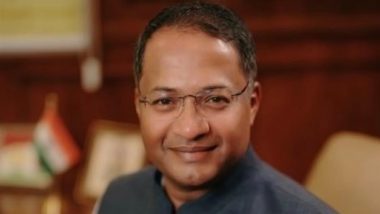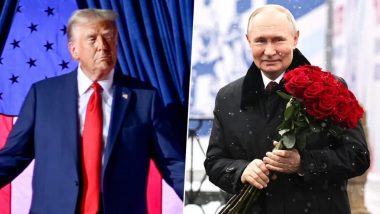Yaounde, Nov 7 (AP) Cameroon's President Paul Biya, sub-Saharan Africa's oldest leader, was inaugurated Tuesday for his seventh term in office amid rising separatist unrest.
The 85-year-old Biya, who has been in power since 1982, was sworn in days after separatists allegedly kidnapped dozens of students and an American missionary was fatally shot as soldiers and separatists exchanged gunfire.
Biya asked all the fighters opposing his government to drop their guns, threatening further military action. He said he would work to ensure that peace returns to Cameroon.
Opposition parties have demonstrated against Biya's re-election, and violence has increased in the country's English-speaking North West and South West regions, where the armed separatists are fighting for an independent English-speaking state.
Late Sunday, 79 students and three staff members were abducted from a school near the northwestern regional capital of Bamenda.
UN Secretary-General Antonio Guterres condemned the kidnappings and called Tuesday for the immediate release of the abducted students and adults. Guterres stressed "there can be no justification for these crimes against civilians, particularly minors," UN spokesperson Stephane Dujarric said.
A video was released on social media Monday by the apparent kidnappers, showing some of the boys saying they were taken by separatists fighting to create the independent state of Ambazonia.
However, the Ambazonia Governing Council, the separatists' official organization, released a statement condemning the kidnappings and demanding freedom for people taken from the school.
The council called on the military to withdraw from the regions it calls Ambazonia, to avoid further escalation of violence.
The unrest began in November 2016 when English-speaking teachers and lawyers in the northwest and southwest began calling for reforms and greater autonomy in the largely French-speaking country.
They marched in the streets, criticizing what they called the marginalization of English speakers by French speakers. Armed separatists later took over the protests and began using violence in pursuit of their goal.
Fighting between the armed separatists and security forces has killed hundreds. The unrest has also forced tens of thousands to flee.
The October 7 presidential election saw few voters in the Anglophone regions.
"The objective of the secessionists is against our constitution that consecrates the indivisible nature of our nation," Biya said at his inauguration.
"We have started implementing measures to attend to the grievances raised by teachers and lawyers by accelerating the decentralization process."
The conflict poses a serious challenge for Cameroon, a close US security ally in combating extremism and a new member of the UN Human Rights Council.
The UN's Dujarric said Guterres reiterated the need for a peaceful solution to the crisis in the English-speaking regions "through an inclusive dialogue process."
He said the UN "stands ready to assist in this regard." (AP) NSD
(This is an unedited and auto-generated story from Syndicated News feed, LatestLY Staff may not have modified or edited the content body)













 Quickly
Quickly





















